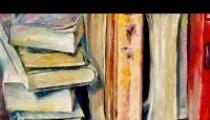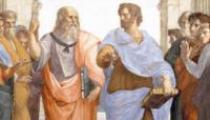This is a beautiful study of the remarkable life of Charles de Foucauld written in a delightfully limpid style which brings alive Foucauld's family and professional life as a soldier in France and his wanderings throughout Africa.
Charles de Foucauld was born into a family of modest means, but with significant family connections, in Alsace in 1858. Both his parents died while he was quite young. He was raised by his maternal grandparents and squandered his inheritance in a life of dissipation: 'I pass the time hunting and taking horseback and carriage rides. I sleep late, I eat a lot and think little. Excellent conditions for remaining healthy.' Charles was the archetypical nineteenth century 'rich young man'. After his conversion he sought solitary life in various forms - as a disguised handyman for the Poor Clares in Bethlehem and as a Trappist monk. He was ordained in 1901. For the rest of his life he lived a virtually hidden, contemplative life among various tribes in Algeria. He was murdered by Senoussi bandits at the gate of his little 'fort' at Tamanrasset in 1916.
His conversion and life of faith are the major interests of his biographer. Time, the prayers of others (especially family members) and the action of the 'bright wings of the Holy Spirit', having abandoned his faith for thirteen years, he was converted under the majestic tutelage of Fr. Huvelin, unsurprisingly in the church of St. Augustine, in Paris on 30th October 1886. Antier recounts how, after making his confession, 'Charles rose to his feet. He felt astonishingly light and at the same time possessed of an incomprehensible joy. In one moment, all his doubts had been swept away. He did not believe, he knew.'
The most impressive aspect of this biography is Antier's interweaving of the life of Charles in his obscure yet hermit-like existence among the tribes of Saharn Africa with so many of the truths of the spiritual life. Thus, Charles' day was centred round the Mass, adoration of the Eucharist, meditation and contemplation. In relation to his plan for a new religious order, the Little Brothers of Jesus, Charles wrote: 'The contemplative orders are always called in advance of the teaching and preaching orders, for adoration makes everything ready.'
He grappled daily with his memories of a misspent life, the discipline of prayer and his care for the poor. His touchstones, however, were the Eucharist, in the Mass and in adoration. These foundational ingredients informed everything he did. For example, rather like Therese of Lisieux, Charles longed to honour his Christian responsibility to evangelise.
But, how did he do so? He evangelised through the holiness of his life, through adoration and through friendship: 'My task will not be to convert. I am not worthy, nor do I have the skill. This is preparatory work, the establishment of confidence, of friendship.' He thought that the Bedoin and Berber tribes and the nomadic Arabs might not yet be able or ready to accept the gospel message and that therefore friendship, care and prayers were the best approach. Antier notes: 'Since he spoke the language of the country (Charles had taught himself Tuareg and worked prodigiously on a French-Tuareg dictionary) and he adored God, they ended up loving him.'
A few snippets are necessary to close this note on a wonderful book. On the necessity of sound teaching Charles made two observations. In relation to his own life he said that sound teaching 'straightened out his thinking, helped him love the Church and transformed his inner life.' In relation to the handing on of the tradition, he says, 'Young people need to be taught not by those who are impartial, but by believing, saintly souls.' He described prayer as a 'restorative' and celibacy 'became sweet to me, a heartfelt necessity.' He abhorred the image of the priest as a bureaucrat of faith, and instead saw the priesthood as an opportunity to be God's acrobat - without a safety net!
This is a book to be savoured. Let Charles have the penultimate word, taken from a letter to his friend, Henri de Castries, dated 23rd. June 1901:
'We would like to found on the Morrocan frontier, not a Trappist house, or a great rich monastery, or a large farm, but a small and humble sort of hermitage where a few poor monks could live off some produce and a little barley harvested with their own hands, in a small cloister, in penance and adoration, not preaching but giving shelter to all comers, good or bad, friend or foe, Muslim or Christian. This is evangelisation, not through words, but through the presence of the Most Blessed Sacrament, the offering of the divine sacrifice, prayer, penance, the practice of universal and brotherly charity, sharing down to our last mouthful of bread with every pauper, every guest, every stranger who arrives, and receiving every human being as if he were a beloved brother.'
And the last word? From Augustine's Confessions - 'take and read.'
Charles de Foucauld
by Jean-Jacques Antier (Ignatius Press, 1999)
Book review from the September 2001 Newsletter by Dr. Warwick Neville
Research Fellow, Australian Catholic Bishop's Conference




